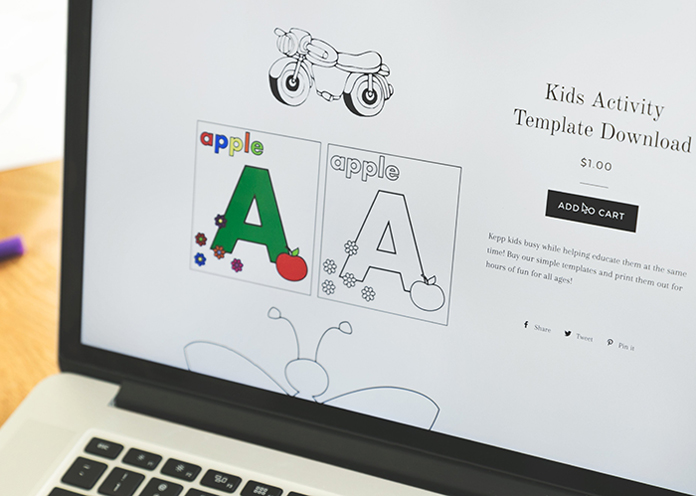The following blog post is written with the intent to approach the subject of eCommerce platforms to beginners who literarily don’t have any knowledge about eCommerce platforms and to provide some helpful tips for choosing the right eCommerce platform.
Just recently I’ve realized that all conversations with future eCommerce owners start with stuff which is part of the later process of running an eCommerce website. They want their eCommerce to be launched as soon as possible.
Basically, the future eCommerce owners are eager to find out everything and let themselves bombarded by countless information. Eventually, they get tired and reach for the solution that seems most appropriate. They do this because they get impressed one way or another by a variety of presentations, directly by developers or by others, like individuals who offer their professional but often as well as amateur opinions.
We as human beings feel far more comfortable doing things or making choices we recognize as mainstream
We as human beings feel far more comfortable doing things or making choices we recognize as mainstream. This is true especially when we lack experience and knowledge about the subject of our interest, and this is what occurs for a huge number of individuals (eCommerce beginners) entering the world of eCommerce too.
Although leaving others to make a decision for us is a time-saving move, on the other hand, is shows our laziness and carelessness, as we’re ready to rely on our own luck only.
Now, if you are an entrepreneur no matter the size and a future eCommerce owner, don’t do this to yourself. In other words, do not be a lazy person, do your homework, and leave so-called luck aside.
So-called the BEST OF lists
The very basic mistake eCommerce beginner can make when trying to figure out what eCommerce platform to choose is to rely on the BEST OF lists.
Just by typing in Google something like “best ecommerce platforms” you’ll get some results to pick from. Don’t do that!
Believing that it cannot do any harm to pick one from the best is not the wisest thing when it gets about eCommerce platforms, and it’s not advisable to. It can sound weird but you don’t want to be stuck at some point with your eCommerce platform in the middle of your business expansion. What can happen is that your current eCommerce platform cannot support all requirements that suddenly appeared from nowhere. Sure, we cannot know all the requirements when we start, however, making sure we meet these we know, can help us in the future. Those to whom this scenario happened know well their first reaction was to try to postpone inevitable.
It’s true, few eCommerce owners will migrate their inventory from one to another eCommerce platform cause of a one or a couple missing features. In the end, you may find yourself having a hard time deciding between moving to another eCommerce platform or adding a custom developed feature to your existing one.

Does the best eCommerce platform exist?
There is no such thing as the best eCommerce platform. We should only agree with the statement “most popular” as the one which is used among the largest number of users.
The best eCommerce platform, in general, does not exist. There is only a platform that fits best for you. That said, there is perhaps an eCommerce platform suited best for the most part of users but there is no reason to take that path as you can work your way through to the best one for you.
Solo runners and small teams
We know, many future great entrepreneurs start alone or with small teams. One person or the team is doing everything. Often, there is no time-space for another activity.
So, you should be honest with yourself. There is a limit to the number of things we can do and manage if we strive to maintain acceptable quality. The limit is often imposed simply by a lack of time.
multi-task does not exist, there is only time-sharing
I’ve read somewhere, multi-task does not exist, there is only time-sharing. In other words, you can share the time spent at work doing a variety of tasks.
Think twice before running either alone or as a small team through all eCommerce hurdles. This is not said to scare anyone. Depending on the numbers such as the number of items you’re selling and the number of possible customer inquiries, this can quickly become a full-time occupation. You don’t wont to ruin your good reputation by taking too long to reply to inquiries. After all, there is more about eCommerce than just managing your items. Stuff such as regular platform maintenance is expected from time to time.
How is your competition doing
There is (almost) always someone else selling the same stuff as you do. If they run an eCommerce platform it is worth checking how things are going.
You can always check what is that you like or dislike about their eCommerce platform in terms of features and usability. This should give you an idea of what to avoid and what is a must-have in order to make your future eCommerce platform not fall behind your competitors.
Create a checklist for your eCommerce platform
Prior to going through the process of selecting your future eCommerce platform, you should have a list of your own requirements in the form of a checklist. Think of what are your expectations and how do you see your eCommerce can help you and your business.
Do not work on your checklist by looking at the web. That’s a hidden trap. If you or your team cannot think of any eCommerce feature without looking at the web, then you’re certainly not the right person or team to deal with the task.

Get some external help
Although it is advisable to have a professional consultation at least. For the reason of not being able to create your own checklist without looking at the web or any other reason, you better ask a professional to figure out a solution for you.
Engage a proven professional to help you start with the eCommerce and help you run it for a certain period of time. If your intention is to take over eCommerce platform activities at a later stage, you’ll have to take part in doing stuff from the beginning. Of course, stuff that can be done according to your level of ability to get involved in the maintenance and operation of your platform. Make sure the person you engage understands that you or your team need him/her to help you learn about running an eCommerce website.
So, you wonder now where to start?
You already started and if you were lucky to read this blog post before any other content on this subject, consider it a great start. However, I strongly believe, you should learn the differences between SaaS (software as a service) and Self-Hosted. If you grasp it, you’ll be able to make a better decision.
Basically, with the SaaS eCommerce platform, you’ll require little or no technical knowledge as the company (service provider) technical team takes care of those elements. On the other hand, you’ll not have control over the software, but do you really need any control? A Self-Hosted eCommerce platform is better suited for customization, you’ll be able to add features that only you need, but do you really need any special feature?
Of course, there are more differences between SaaS and Self-Hosted eCommerce platforms. Also, there is more to be considered, things such as open-source vs proprietary software, free vs licensed software, etc. I know, all this started now to be confusing. That’s actually why I wrote this blog post. To save you from embarking on the wrong direction.
